Nigeria
Malaria is one of the leading causes of death in Nigeria. According to the 2020 World Malaria Report, Nigeria accounts for 27 percent of malaria cases globally and 23 percent of deaths from the disease, 30 percent of admissions to Nigeria’s hospitals are as a result of malaria. In Nigeria, there is still insufficient data around health more widely, which impacts the amount of evidence available for decision-making. We support the National Malaria Elimination Programme to build capacity within the health system more broadly and support in the delivery of malaria interventions in the country.
IPTi Effect: Nigeria operational feasibility and effectiveness of IPTi
Malaria Consortium is supporting the Nigerian government and working with partners to undertake a study to assess the clinical effectiveness and operational feasibility of intermittent preventive treatment of malaria in infants (IPTi) in Nigeria. It aims to generate the necessary evidence to support the intervention’s uptake in the national health policy. The project is funded by BMGF and runs from November 2020 to October 2024.
IPTi Design, Analyze and Communicate (DAC) Trial Planning Grant
Malaria Consortium will support the following deliverables for the Effect IPTi project: A simulation report and recommendations and potential study outcomes, which includes raw data, a completed assessment tool questionnaire, the creation of a Statistical Analysis Plan, as well as statistical support and the application of a framework.
GiveWell IPTi Scoping Grant
Malaria Consortium in partnership with PATH, received a grant from the Givewell to accelerate the scale-up of IPTi in Nigeria and the Democratic Republic of Congo (DRC) by building upon learnings from Sierra Leone’s IPTi experience, the only country that has fully rolled out IPTi, as well as other ongoing IPTi projects funded by the Bill & Melinda Gates Foundation, UNITAID, and the Global Fund to Fight AIDS, Tuberculosis and Malaria across Africa.
Improving Vitamin A Coverage through integration with SMC delivery: an implementation research in rural and urban settings in Nigeria
This study aims to provide additional evidence to support policy makers’ decision-making regarding full integration of VAS with SMC campaigns at scale and in diverse settings in Nigeria. Malaria Consortium is designing and implementing an integrated SMC plus VAS campaign at scale in Bauchi state and will assess the feasibility and acceptability of integration among caregivers, field implementers, and policy makers. The grant is funded by the Bill & Melinda Gates Foundation through The Task Force for Global Health.
Niger State Wraparound Technical Assistance for CHIPS Program
Malaria Consortium is providing technical assistance to support Niger state in north-central Nigeria with the implementation of a community-based primary healthcare (PHC) programme that is integrated with the Community Health Influencers, Promoters and Services (CHIPS) programme launched by Nigeria’s National Primary Health Care Development Agency.
KOICA/SMC IMPACT
The objective of the SMC IMPACT programme is to reduce malaria morbidity and improve geographic coverage with SMC.The two supported LGAs are Ningi and Tafawa Balewa; and in the first year, a total of 265,000 eligible children were covered. The end of round (EoR) survey report indicated a 94.5% coverage of all eligible children in Bauchi State and 98.5% of the covered children receiving full course perventive treatment for at least 3 of the 4 cycles.
Malaria Consortium Philanthropic Funding: Ondo and Anambra ITN Campaign
Malaria Consortium received grants to implement insecticide-treated net (ITN) distribution campaign in collaboration with the National Malaria Elimination Programme (NMEP) in Ondo and Anambra states through philanthropic funding.The goal of the ITN Campaign is to contribute to the reduction of malaria burden to pre-elimination levels while bringing malaria-related mortality to zero.
Monitoring and Evaluation of LLIN Distribution Campaign in Ondo and Anambra States, Nigeria
With this monitoring and evaluation project in Ondo and Anambra, we aim to study the epidemiological and entomological impacts and outcomes of the ITN campaigns compared to baseline, and use the findings to improve vector-control decisions based on a deeper understanding of the intervention’s cost-effectiveness.
Malaria Consortium in Nigeria
Malaria Consortium has been working in Nigeria since 2008, working in partnership with the Ministry of Health and other national, regional and global stakeholders to lead and support malaria control initiatives in the country.
In May 2015, Malaria and Public Health Nigeria (MPH-N) was registered as a non-governmental organisation under the Companies and Allied Matters Act 1990, becoming the Nigerian entity of Malaria Consortium and sharing the same mission to improve lives in Africa and Asia through sustainable, evidence-based programs that combat targeted diseases and promote universal health coverage.
MPH-N is funded by Malaria Consortium and other generous charitable donations from individuals and foundations to enable it implement programs in Nigeria and other countries to help reduce the burden of malaria and other treatable and preventable diseases in Africa and Asia.
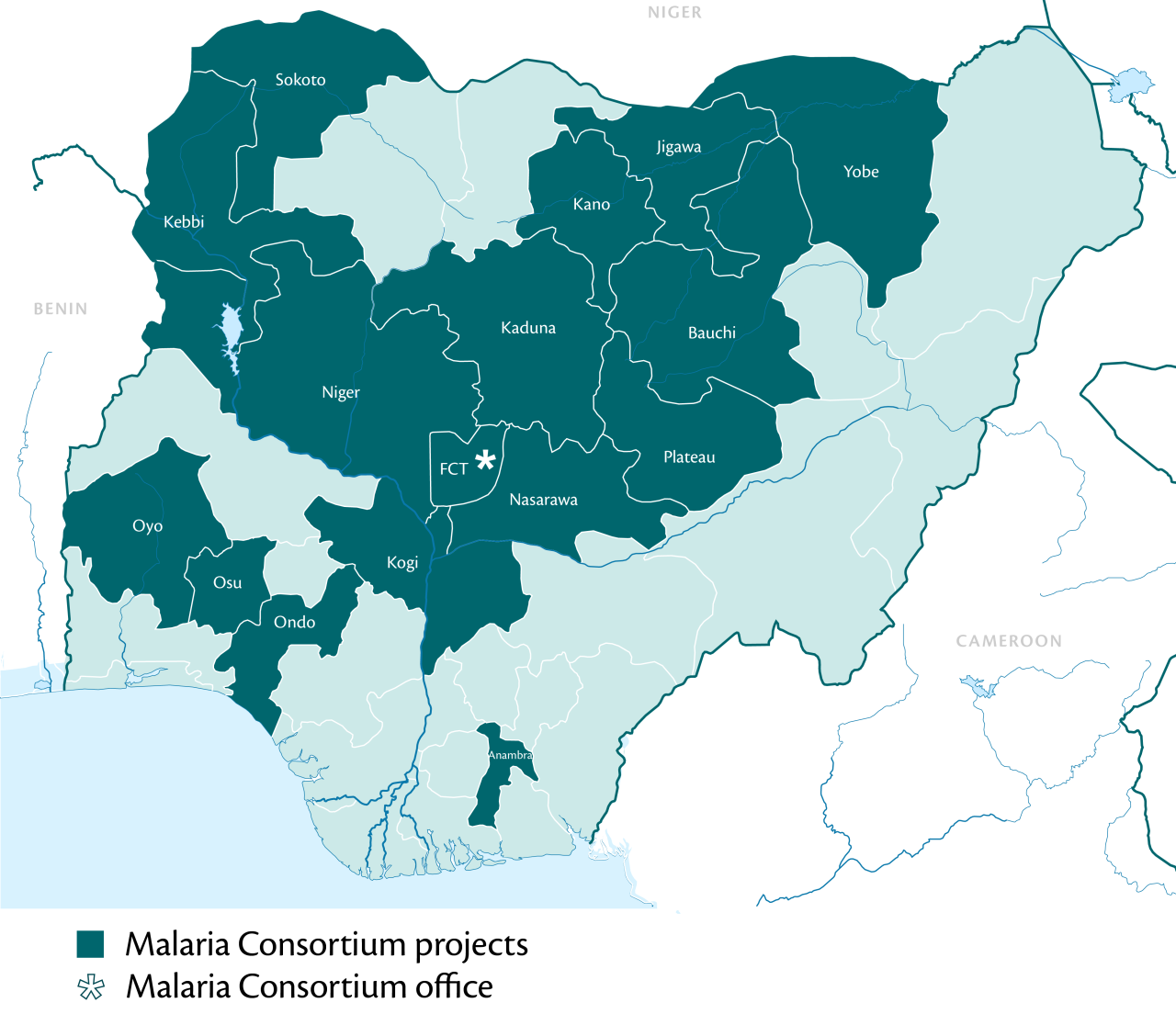
Areas of focus
Malaria Consortium is supporting Nigeria’s National Malaria Elimination Programme to deliver a set of interventions that are designed to develop capacity around reporting and case management within the public health system. The project will be implemented in 13 highly populous malaria-endemic states, with Malaria Consortium delivering interventions at the health facility level in Jigawa, Kaduna, Kano, Niger and Yobe. We are also implementing the integrated community case management component of the grant in Jigawa and Niger, as part of the Community Health Influencers, Promoters and Services (CHIPS) intervention; distribute long lasting insecticidal nets (LLINs) in Jigawa and Yobe; and deliver seasonal malaria chemoprevention (SMC) in Jigawa, Kaduna, Kano and Niger. This project is funded by the Global Fund to Fight Malaria, Tuberculosis and HIV/AIDS.
Seasonal malaria chemoprevention (SMC) is a highly effective intervention to prevent malaria in those most vulnerable to the disease’s effects. It involves administering up to four monthly doses of antimalarial drugs to children aged 3-59 months during peak malaria transmission season. Through our SMC programme, we work with malaria control programmes to deliver SMC using existing health system mechanisms as much as possible. We assist in the training of volunteer community health workers and distributors to administer SMC (as well as their supervisors and other health staff) and we also conduct social mobilisation, disseminating public health messages to inform communities of SMC and how and why their children should receive it.
Malaria Consortium began with early implementation pilot of SMC in Nigeria in 2013 leading to policy adoption of SMC as malaria control strategy in Nigeria. Malaria Consortium now covers over 14 million eligible children across 12 states in Nigeria. This has stimulated more investment from major donors including the U.S. President's Malaria Initiative (PMI) and the Global Fund with the resultant effect of 100 percent (about 21 million) coverage of eligible children in Nigeria with the SMC intervention.
SuNMaP 2 is a UK aid-funded follow-up to SuNMaP, supporting the government’s efforts to further reduce Nigeria’s malaria burden. The programme integrates malaria prevention, treatment, and other interventions at the community and service delivery levels, as well as in other settings, through public and private sector partnerships. The project aims improve the planning, financing and delivery of sustainable malaria programmes across 165 local government areas in six states of Nigeria: Jigawa, Kaduna, Kano, Katsina, Lagos, and Yobe.
Related content
 Resource: Journal article
Resource: Journal articlePublished 30 March 2024
Receipt of seasonal malaria chemoprevention by age-ineligible children and associated factors in nine implementation states in Nigeria
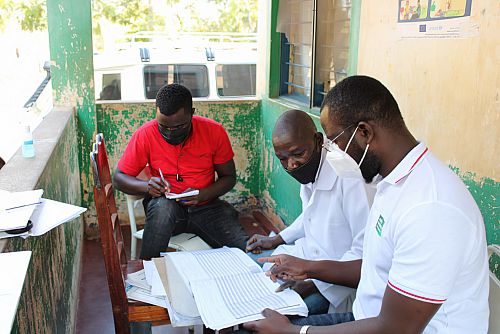 Page:
Page:About us
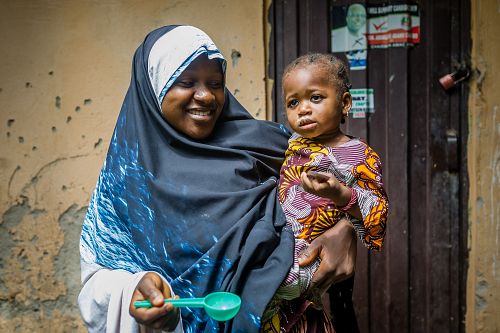 News:
News:Published 6 March 2024
Global SMC community celebrates new milestone at SMC Alliance Annual Meeting in Nigeria
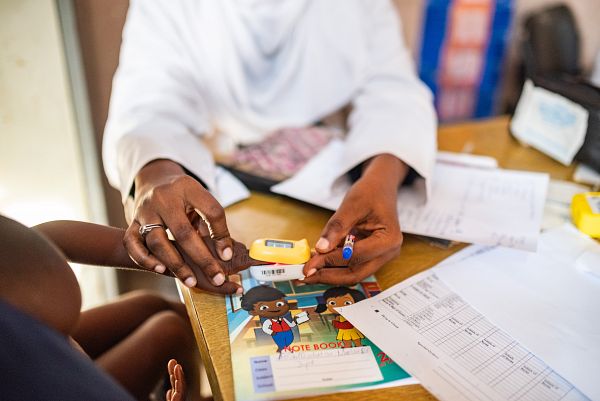 Resource: Project brief
Resource: Project briefPublished 27 February 2024
Severe malaria: Strengthening diagnosis and case management
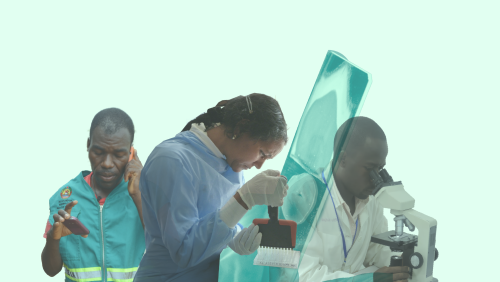 Page:
Page:Our third year as an Independent Research Organisation: Using research to respond to health inequities and emerging threats
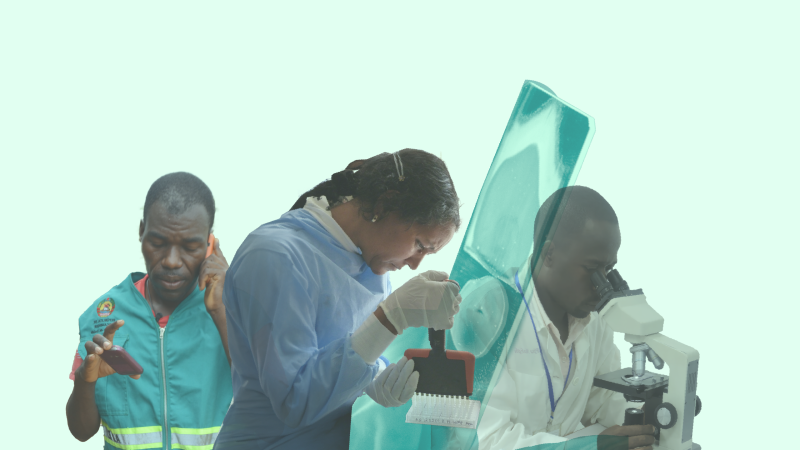 Blog:
Blog:Published 20 February 2024
Our third year as an Independent Research Organisation: Using research to respond to health inequities and emerging threats Page:
Dr Sylvia Meek scholarship for Entomology
 Resource: Journal article
Resource: Journal articlePublished 2 January 2024
Urban–rural differences in SMC coverage and characteristics of target populations in nine states of Nigeria
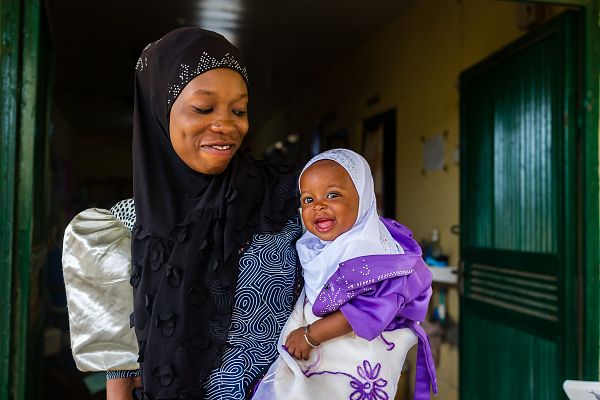 Resource: Annual review
Resource: Annual reviewPublished 2 January 2024
Trustee's report and financial statements for the year to 31 March 2023
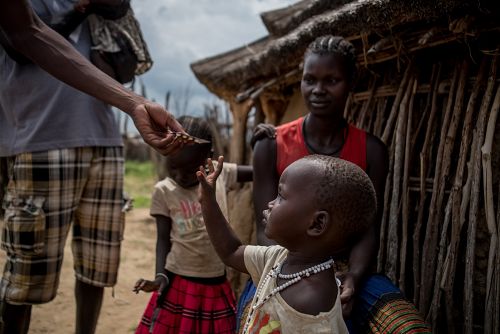 Page:
Page:The impact of Global Fund investment in fighting malaria
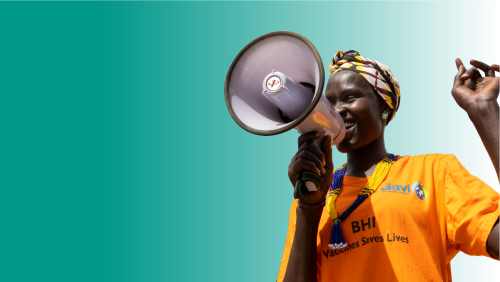 Page:
Page:Top reads of 2023
 Blog:
Blog:Published 15 December 2023
Top reads of 2023
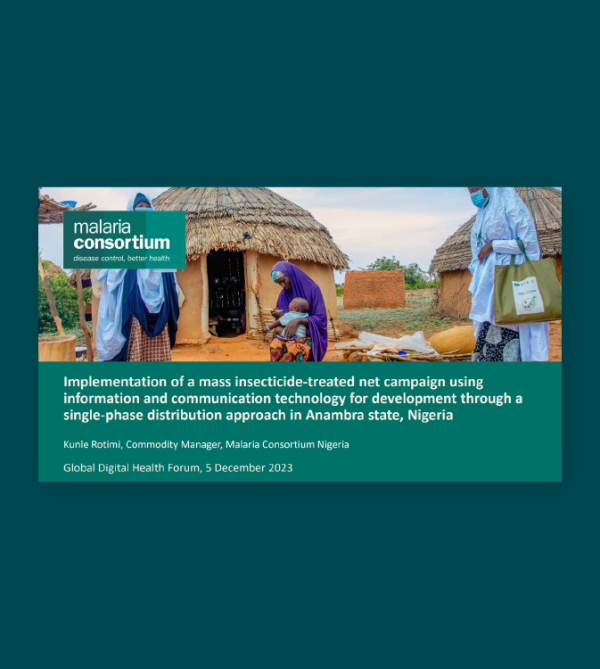 Resource: Presentation
Resource: PresentationPublished 5 December 2023
Implementation of a mass insecticide-treated net campaign using information and communication technology for development through a single-phase distribution approach in Anambra state, Nigeria
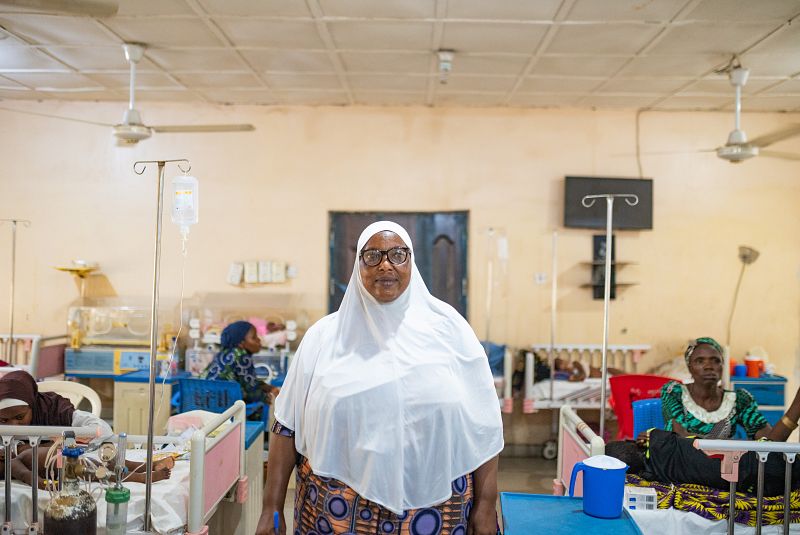 Blog:
Blog:Published 27 November 2023
Mairo's mission to save lives: The matron improving outcomes for children with severe malaria
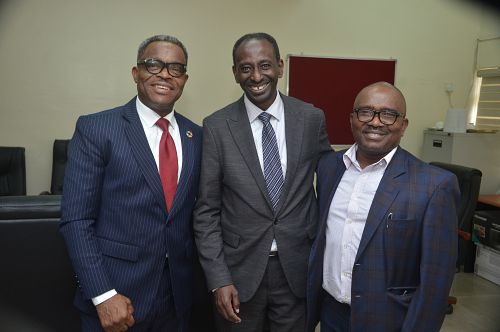 News:
News:Published 27 November 2023
Nigeria welcomes Malaria Consortium’s Chief Executive on collective efforts for national health sector resilience
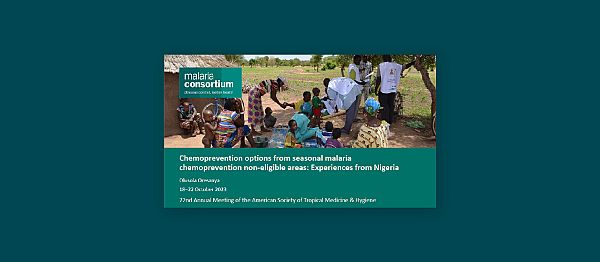 Resource: Presentation
Resource: PresentationPublished 21 October 2023
Chemoprevention options from seasonal malaria chemoprevention non-eligible areas: Experiences from Nigeria
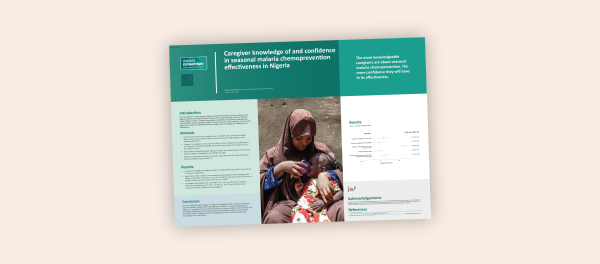 Resource: Poster
Resource: PosterPublished 20 October 2023
Caregiver knowledge and confidence in seasonal malaria chemoprevention effectiveness in Nigeria
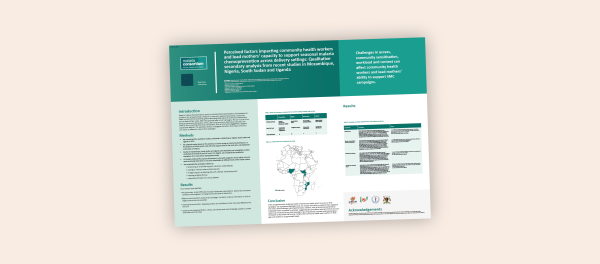 Resource: Poster
Resource: PosterPublished 20 October 2023
Perceived factors impacting community health workers and lead mothers’ capacity to support seasonal malaria chemoprevention across delivery settings: Qualitative secondary analysis from recent studies in Mozambique, Nigeria, South Sudan and Uganda
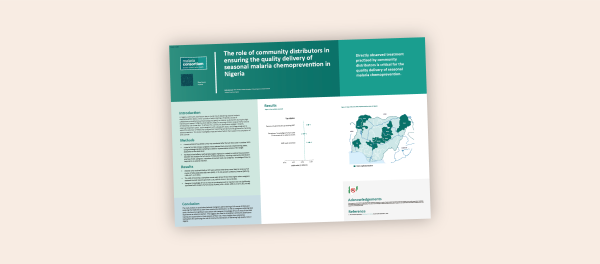 Resource: Poster
Resource: PosterPublished 20 October 2023
The role of community distributors in ensuring the quality delivery of seasonal malaria chemoprevention in Nigeria
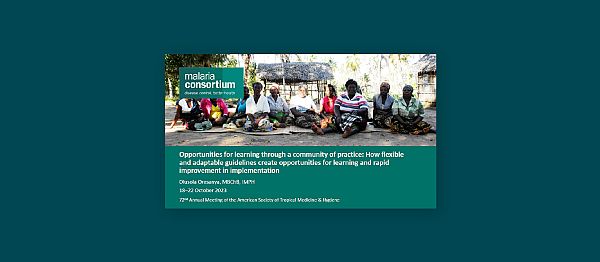 Resource: Presentation
Resource: PresentationPublished 20 October 2023
Opportunities for learning through a community of practice: How flexible and adaptable guidelines create opportunities for learning and rapid improvement in implementation
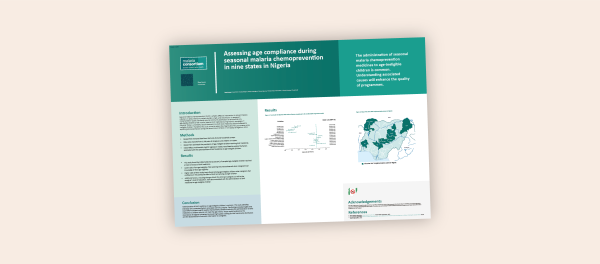 Resource: Poster
Resource: PosterPublished 19 October 2023
Assessing age compliance during seasonal malaria chemoprevention in nine states in Nigeria
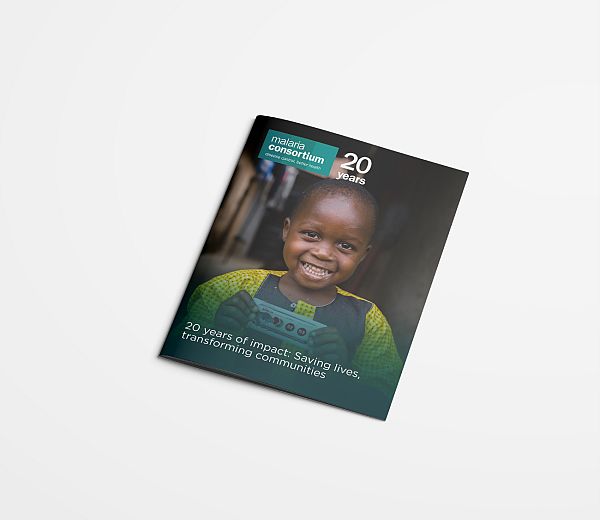 Resource: Annual review
Resource: Annual reviewPublished 18 October 2023
20 years of impact: Saving lives, transforming communities
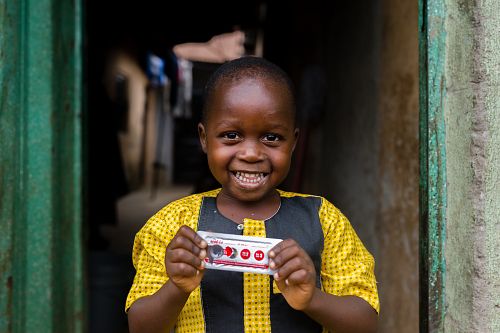 Page:
Page:20 years of impact: Saving lives, transforming communities
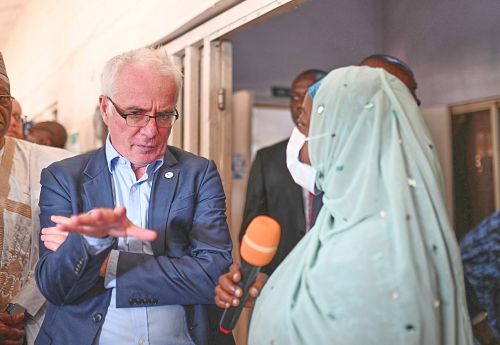 News:
News:Published 2 October 2023
State visit shines international spotlight on Kano’s malaria response
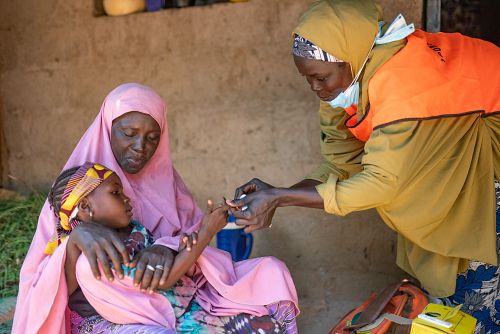 News:
News:Published 21 September 2023
UN High level meeting puts spotlight on essential investments for universal health coverage
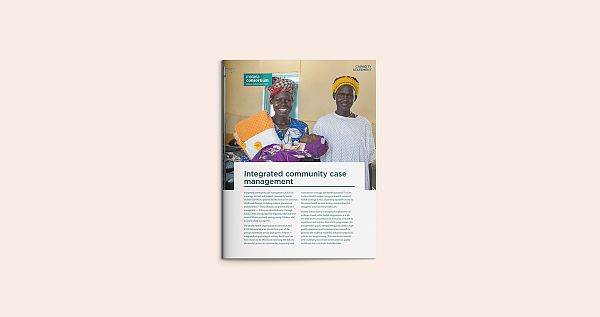 Resource: Capacity statement
Resource: Capacity statementPublished 20 September 2023
Integrated community case management
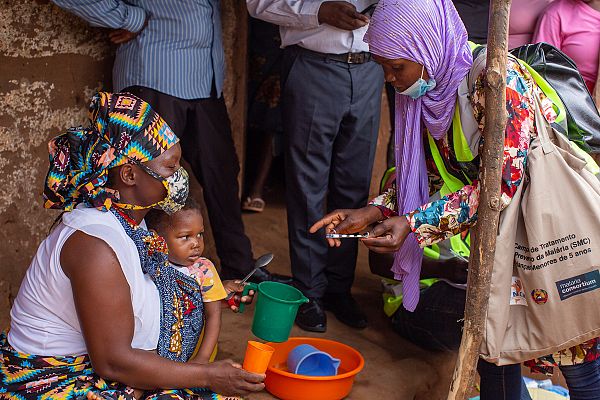 Resource: Learning brief
Resource: Learning briefPublished 13 September 2023
Supporting the scale-up of seasonal malaria chemoprevention in Mozambique
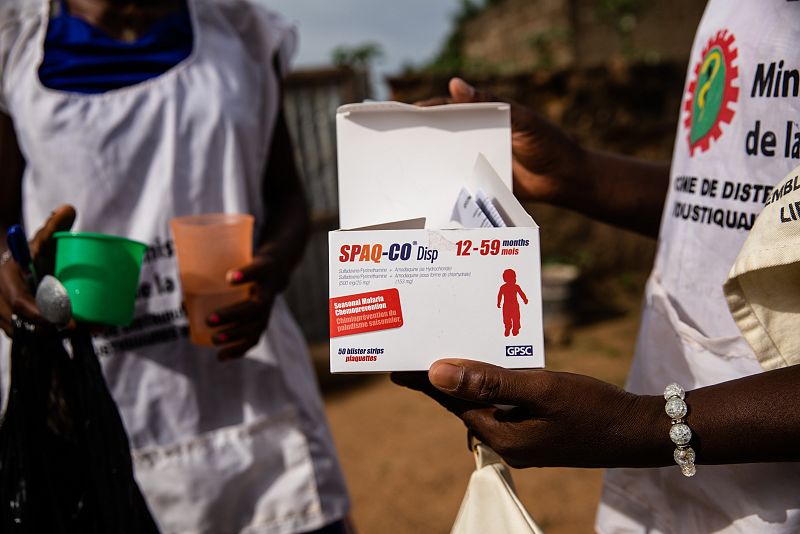 Blog:
Blog:Published 16 August 2023
Distributing anti-malaria medicines to 24 million children: The supply chain step-by-step